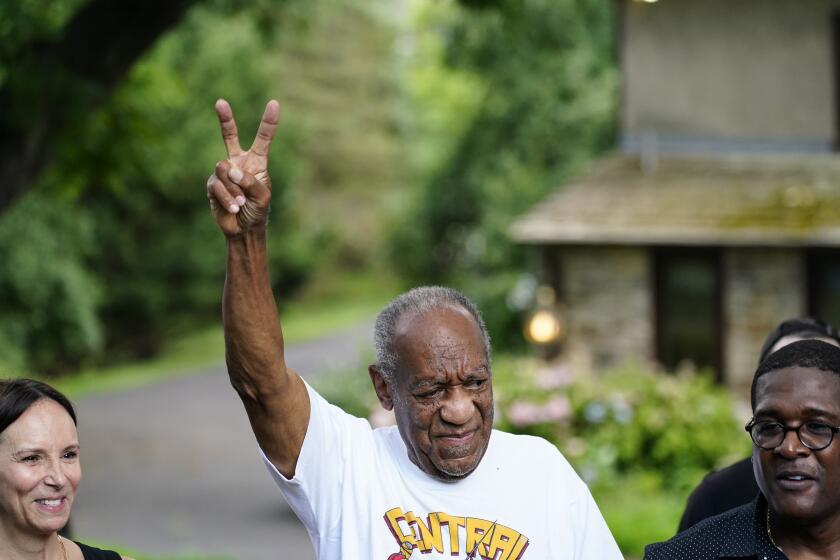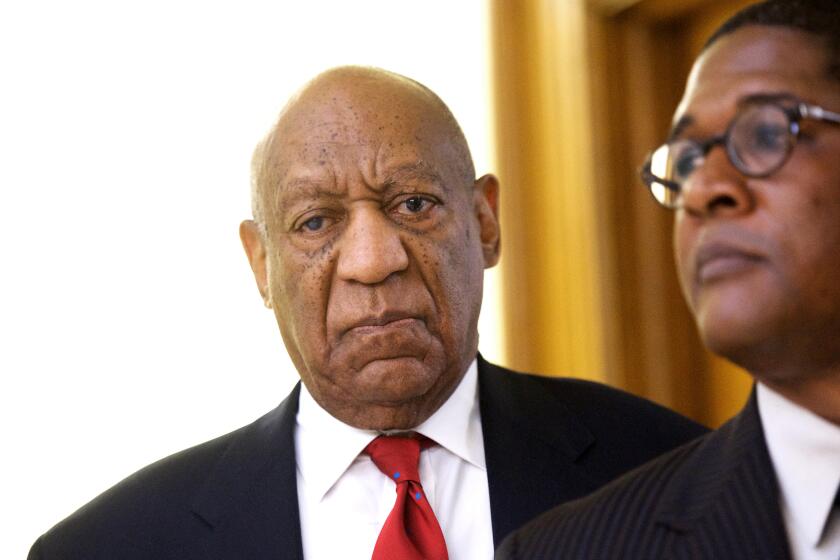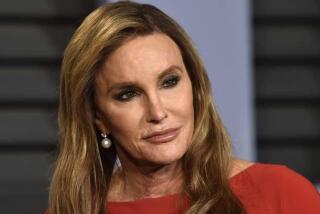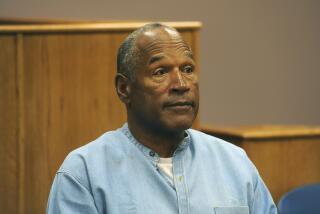Commentary: Why Phylicia Rashad’s defense of Bill Cosby is so infuriating
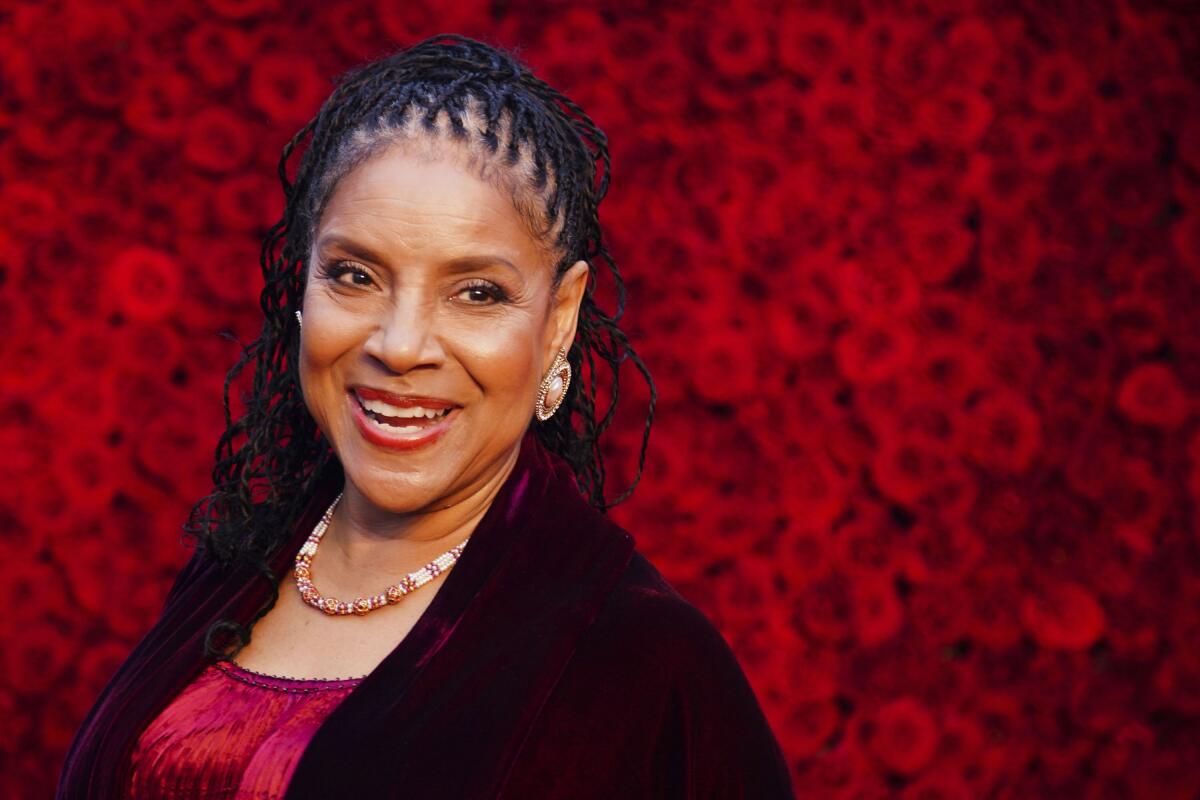
Et tu, Phylicia?
Barely an hour after the news broke that Bill Cosby, the once-beloved TV star whose conviction for sexual assault marked a major victory for the #MeToo movement, would be released from prison on an infuriating technicality, his longtime TV wife Phylicia Rashad weighed in on Twitter.
“FINALLY!!! A terrible wrong is being righted — a miscarriage of justice is corrected!” she wrote in a message accompanying a photo of the comedian looking frail, as if to elicit our sympathy.
It was an example of a hallowed celebrity tradition, the seriously-no-one-asked-why-are-you-talking-right-now tweet, one that poured fuel on an already incendiary situation. Never mind that the Pennsylvania Supreme Court’s decision in no way exonerated Cosby of the charges against him as Rashad seemed to be arguing.
The actress — or whoever handles her social media accounts — surely knew her comment would be controversial: Replies on the tweet were limited to the two accounts she follows, one of which belongs to her sister, Debbie Allen. And within a few hours, Rashad tried to walk back her statement, though as of this writing she has not deleted the original tweet.
Bill Cosby was released from prison after Pennsylvania high court ruled the sex assault case against him violated an earlier deal with prosecutors.
Outrage over the stunning reversal of Cosby’s conviction quickly morphed into anger at Rashad, who — until Wednesday, at least — remained a cherished performer, untarnished by her longstanding association with and previous defense of Cosby. (In a 2015 interview she suggested Cosby was the victim of a conspiracy). Just last month Rashad was named dean of the Chadwick Boseman College of Fine Arts at Howard University.
It remains to be seen whether the controversy will blow over as readily as Cosby departed from a Pennsylvania prison Wednesday afternoon in a white sedan. If Howard University and the two current TV series on which she has recurring roles — NBC’s popular family drama “This Is Us” and OWN’s coming-of-age series “David Makes Man” — decide to say “Bye, Phylicia,” few will be surprised.
For many who grew up watching “The Cosby Show” and have tried to separate the positive aspects of the sitcom’s legacy from the loathsome alleged behavior of its star and creator, Rashad’s provocation was especially distasteful — in part because her character might have been the show‘s greatest strength.
A timeline of our coverage of the allegations against the star, from their resurfacing in late 2014 to the overturning of his conviction on Wednesday.
We all know in theory that actors aren’t the characters they play, but to children of the ‘80s, Rashad was Clair Huxtable, the firm but loving wife and mother as well as the no-nonsense lawyer who never lost an argument at home. As played with regal charm by Rashad, Clair was both the ultimate sitcom mom and a trailblazing example of a woman who balanced work and family life while bucking traditional gender roles. (Cliff did most of the cooking in their household.)
She was also anything but an enabler and specialized in taking down badly behaved men — even ones in her own family. In one celebrated rant, she lit into her daughter’s dopey boyfriend Elvin (played by Geoffrey Owens) for his antiquated ideas about the role a wife should play at home. She was also comfortable schooling her offspring on matters of gender equality, once scolding teenage son Theo for reading a magazine featuring demeaning images of scantily clad women. More than anything, Clair understood fairness and advocated for it in her marriage, family and professional life.
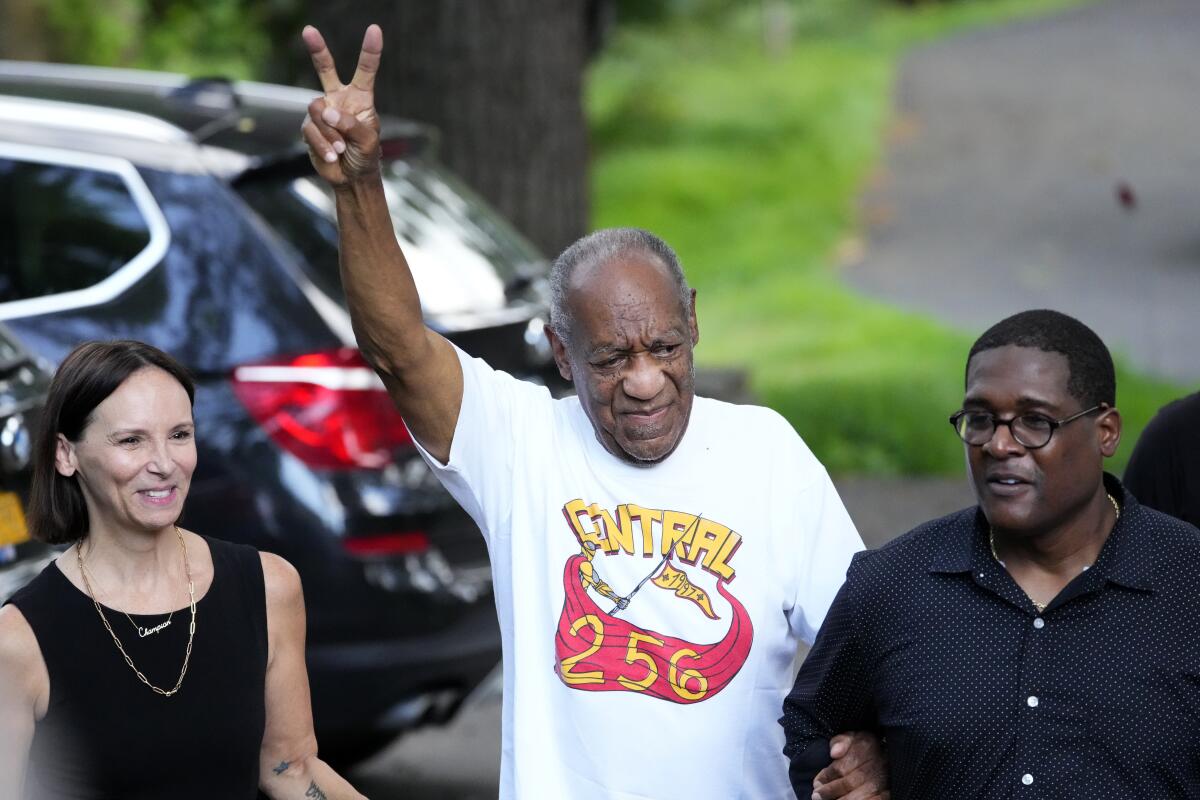
Rashad’s body of work extends well beyond “The Cosby Show” or “Cosby,” the CBS sitcom that tried, with mixed results, to reclaim the magic of the Rashad-Cosby pairing. In the past few years, she’s starred in “Soul,” “Empire,” and “Grey’s Anatomy,” and has been nominated for two Emmys for her guest role on “This Is Us.” While Clair Huxtable remains her best-known character, Rashad is the one needlessly tying herself to Cosby’s legacy.
Part of the reason that Cosby was able to evade legal ramifications for so long was the cognitive dissonance that the long-swirling rumors about him created. Surely America’s Dad, the pudding pop guy, couldn’t be a sexual predator?
For those of us who’ve resolved the dissonance, it’s hard to know his TV wife doesn’t seem to have contemplated the possibility, particularly as many more women came forward in magazine cover stories and in the criminal trial. After all, she would not be alone if she distanced herself from Cosby: Lisa Bonet, who had a notoriously contentious relationship with her TV dad and was reportedly fired from the spinoff “A Different World” when she became pregnant, said in 2018 that Cosby had a ”type of sinister, shadow energy [that] cannot be concealed.”
But it’s not just our relationship with Rashad, through Clair, that made her response so disappointing. It’s that news of Cosby’s impending release and Rashad’s triumphant tweet came amid a dizzying flurry of developments Wednesday in the world of celebrity justice, sending a dispiriting message about fairness and accountability in a post-#MeToo world.
Take a look back at past coverage of the group, leader Keith Raniere, its members and its victims.
Earlier in the day, “Smallville” actress Allison Mack was sentenced to three years in prison — roughly the same amount of time Cosby spent behind bars — for coercing women into having sex with NXIVM cult leader Keith Raniere. And it was revealed James Franco would pay $2.2 million to settle a class-action lawsuit filed by two former students at his acting school who accused him of sexual misconduct. The overlapping news stories made justice feel like an arbitrary zero-sum game in which there are a finite number of consequences to go around. The universe seemed to be saying, “Fine, the ‘Smallville’ girl can go to jail, but only if Cosby gets to go home.”
Or, as Dylan Farrow put it in a statement posted to Twitter, the day’s events provided “a perfect example of how not just our society, but our justice system, continually fails survivors of sexual assault.”
And on Tuesday, TLC announced it was finally cutting ties with the Duggar family by canceling reality show “Counting On” more than two months after Josh Duggar was arrested on child pornography charges and more than six years after it was revealed that, as a teenager, he had molested multiple girls, including several of his sisters, who later went on to star in “Counting On.”
As many noted on social media, there was an awful irony in Cosby, a man accused of raping or sexually assaulting more than five dozen women over several decades, leaving jail thanks to a prosecutorial blunder, when just last week Britney Spears, a 39-year-old woman with no criminal record, told a judge she was prohibited from controlling her own uterus.
It’s become a common refrain to ask if #MeToo has “gone too far” — common enough, in fact, that it was asked even before Cosby’s original sentencing. As Wednesday suggested, the answer still depends perhaps too much on who’s doing the measuring, and who may have cut a deal with the D.A.
More to Read
The complete guide to home viewing
Get Screen Gab for everything about the TV shows and streaming movies everyone’s talking about.
You may occasionally receive promotional content from the Los Angeles Times.
